Oceans
Science News for Students articles on oceans
-
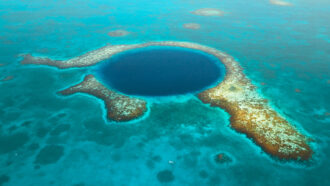
-
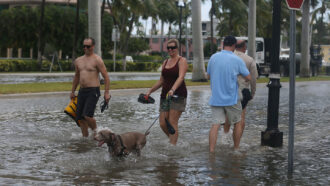 Oceans
OceansMoon’s orbital wobble can add to sea-level rise and flooding
In a dozen years or so, the tide-enhancing effects of a wobble in the moon’s orbit should lead to dramatically higher sea levels in some coastal cities.
By Sid Perkins -
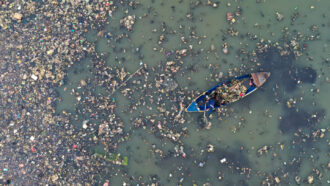 Environment
EnvironmentLet’s learn about plastic pollution
The world is cluttered with plastic waste. All that junk kills animals far and wide.
-
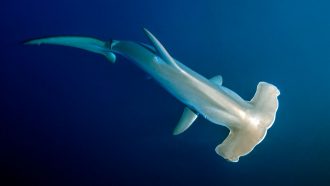 Fossils
FossilsSudden shark die-off 19 million years ago eliminated most species
New fossil evidence shows 90 percent of sharks died in the mysterious event.
-
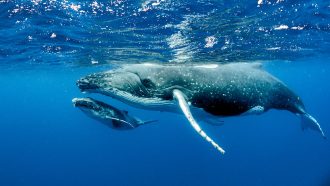 Animals
AnimalsLet’s learn about whales and dolphins
Whales, dolphins and porpoises are all cetaceans — mammals that live in water and have a streamlined body similar to a fish.
-
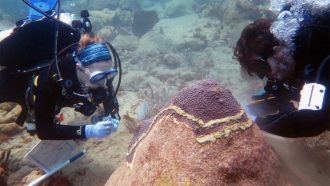 Animals
AnimalsA common antibiotic might save some sick corals
The antibiotic amoxicillin stopped tissue death in corals for at least 11 months after treatment.
-
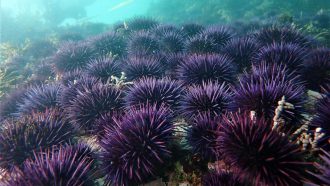 Ecosystems
EcosystemsUrchin takeover underlies California’s vanishing kelp forests
Some 95 percent of kelp forests along its northern coast are gone. Meanwhile, sea otters are helping slow the loss of surviving kelp farther south.
-
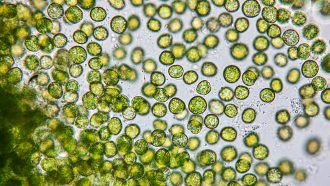 Microbes
MicrobesSeveral plant-like algae can morph into animal-like predators
Single-celled green algae swim through water as free cells. Most use only photosynthesis for their energy. But not all of them, a new study shows.
By Laura Allen -
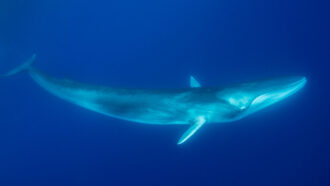 Earth
EarthFin whales could help scientists map what lies below the seafloor
Fin-whale calls are loud enough to penetrate into Earth’s crust, offering scientists a new way to study the properties of the ocean floor.
-
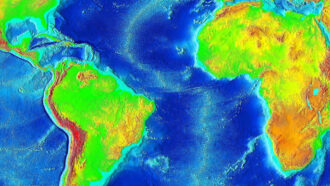 Earth
EarthRock rising from below the Atlantic may drive continents apart
Molten rock rising from the deep mantle at the Mid-Atlantic Ridge may drive plate tectonics there more than had been expected.
-
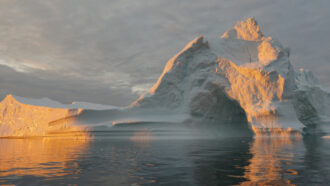 Climate
Climate2020 was warmest year on record for Earth’s oceans
2020 continued the trend of record-breaking heat for the world’s oceans. The three previous warmest years on record were 2019, 2017 and 2018.
-
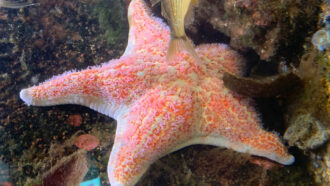 Animals
AnimalsChoked by bacteria, some starfish are turning to goo
For years, researchers thought gooey, dying starfish were infected. Instead, these sea stars are suffocating. And bacteria may be behind it all.